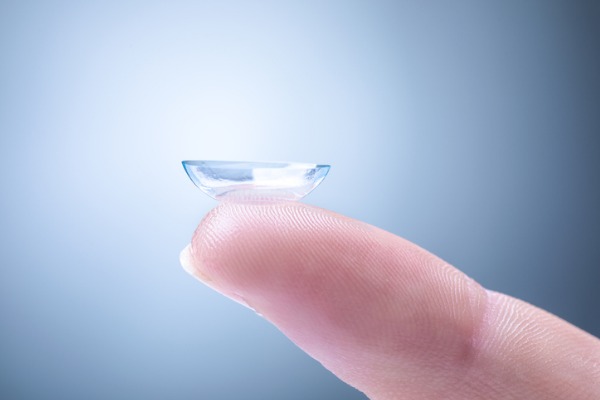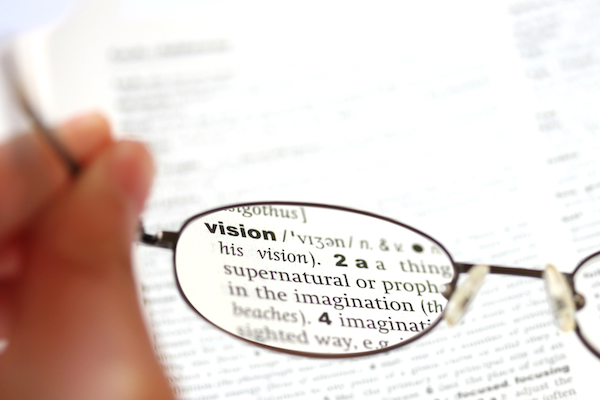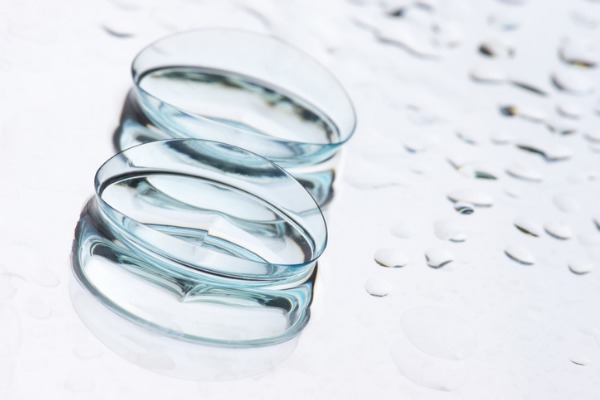
Correct Contact Lens Care for Healthy Eyes
A very large percentage of contact lens wearers do not properly follow contact lens care instructions.
I’m not biased or anything, but I think it’s safe to say that contact lenses are a pretty amazing modern invention (maybe just a little biased). We can’t be absolutely sure when the very first contact lens was invented, but we do know major advancements have been taking place since the 1970’s (soft lenses, disposable lenses, material upgrades, etc.).
In the last 30 years, a vast majority of the visually impaired shifted out of glasses and into contacts lenses. According to the Centers for Disease Control (CDC) “Contact lenses are used by more than 30 million people in the United States.”
Amidst all the positive attributes of contact lenses, there can also be a negative side to contact lens use. Most of the time, this can be attributed to neglect.
The CDC also warns:
- “Not following proper contact lens care instructions has been linked to numerous outbreaks of serious eye infections.”
- “Improper cleaning and irregular replacement of contact lenses and contact lens cases… have been linked to a higher risk of complications.”
- “Between forty & ninety percent of contact lens wearers do not properly follow the care instructions for their contact lenses.”
- “Keratitis—a painful eye infection (often linked to improper contact lens use) leads to 1 million doctor and hospital visits annually, at a cost of $175 million to the US healthcare system.”
Let’s just say, correct contact lens care pays off (in more ways than one).
Useful Benefits of Contact Lenses:
In all actuality, contact lenses are more useful than glasses for many people. They don’t weigh down your face. They (typically) don’t fall off. You don’t have to keep track of them once they’re in. And they basically allow you to be you.
Contact lens use can also be very comfortable and can be worn most days with ease. They also allow for improved peripheral vision (notice the dead spot in your glasses), and may even boost your self-esteem. I remember when I first started wearing contacts, I was very happy to finally put my glasses in storage for a while.
From a professional standpoint, I witness the way contact lenses change several lives for the better almost on a daily basis, and it’s extremely rewarding.
Some patients love their contacts so much, they’ll go as far as hiding symptoms because they don’t want any drastic changes in their daily routine. But this should never be the case because your eye doctor usually has your best interests in mind.
We want to see you in those comfortable contacts as much as you want to wear them. Also, if there happens to be problem with your eye(s), it’s best to treat it right away.
Proper communication between doctor and patient is essential because several eye diseases progress slowly. If a potential disease is caught early enough, a more positive outcome is likely.
One exception to the rule is a serious corneal infection (ulcer), which can be the result of contact lens wear gone wrong. These infections can progress quickly and leave permanent scarring, which can ultimately lead to decreased vision.
Proper Contact Lens Care:
The best way to get the most out of your contacts is to listen to your eye doctor. Most of us are excited to follow instructions for the first couple days or weeks after a check-up. But you’ll have to keep going over the long haul to stay on the right track. There aren’t many simple hacks or shortcuts to healthy eyes, just old-fashioned good-habit reinforcement on a daily basis.
The following is a list of proper contact lens care tips:
- Limit Your Hours – The eyes get more oxygen without contacts. That said, you should limit lens use to 10 – 12 hours per day, six days a week. It’s best to reserve one day a week for glasses only.
- No Sleeping – According to The British Contact Lens Association, “… sleeping in contact lenses overnight increases the risk of infection by about four times, regardless of lens type.”
- Avoid Water – Think of water as the enemy. This includes showering, swimming, or going in a hot tub. Warm water is an ideal environment for many types of bacteria. If water gets into the eye, it soaks into the contact lens like a sponge, increasing risk of infection.
- Wash Your Hands – This prevents the spread of infectious disease. No explanation necessary.
Adjusting to Your Schedule:
You have several options when considering which type of contacts work best for your lifestyle. My personal favorites are daily disposables. These contacts can be thrown away after each use. This lowers the risk of infection because there is no upkeep needed.
Unfortunately, not every patient is a candidate for daily disposables. And not all contact lens prescriptions are available in daily disposable lenses. If you’re prescribed weekly, bi-weekly or monthly disposables, make sure to follow your cleaning schedule to the tee.
A good place to start is to think of your contacts like a carton of milk. They start to expire the second you open the package. It’s good to keep track of contact use on a written calendar or computer device (cell phone, iPad, etc.), and reminders should be set accordingly.
Cleaning Tips:
If you have a weekly, bi-weekly or monthly disposable prescription, your lenses need to be cleaned thoroughly after each use. I recommend using a peroxide based cleaner such as Clear Care or Peroxicare. Both of these are preservative free, however the downside is time (between 4 and 6 hours to finish, typically done overnight). If you’re in a hurry, you should stick to a multi-purpose solution.
To start, make sure your contact case is clean and always use fresh solution in the case. After removing your contact lenses, rub them thoroughly for about thirty seconds and give them a good rinse. You can discard your case every time you buy a fresh bottle of solution (about once a month). The new bottle should always come with a clean case.
Live in Your OcularPrime:
Redness and pain are warning signs of contact lens induced infection. If you start to notice these symptoms (for whatever reason), remove your contacts immediately. If symptoms persist, see your eye doctor as soon as possible. Remember, the quicker you get checked, the better the outcome.
I know I covered a lot in this post, but the subject matter is important. Anyone who wears contacts has most likely suffered through the consequences of neglect at least once or twice. Proper contact lens care can seem like a tall task, it can even be tedious at times. However, if you can implement proper contact lens care habits, you can enjoy comfortable use for years to come.







